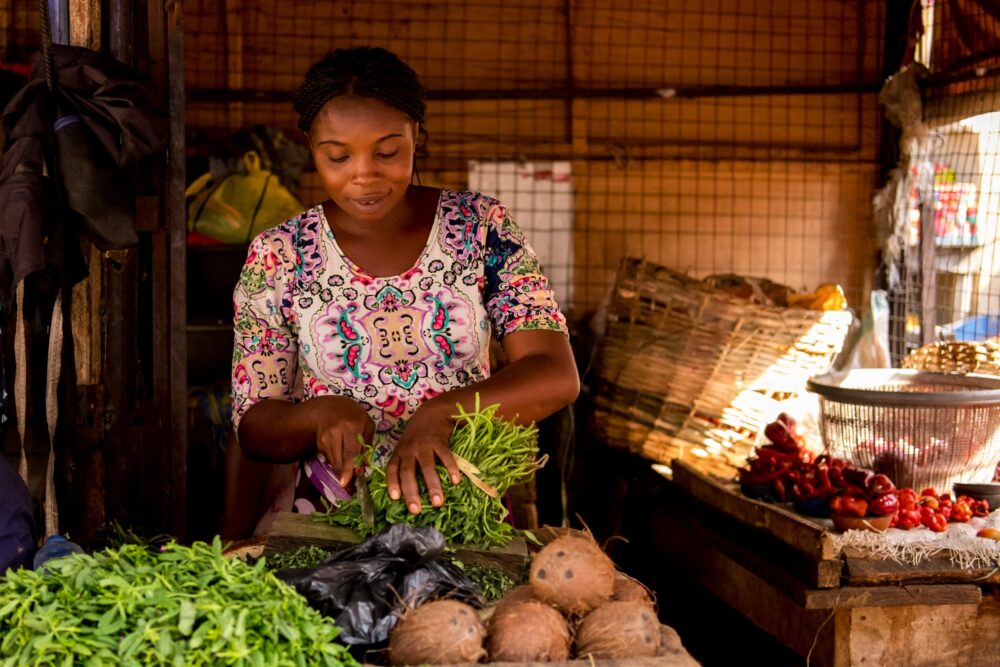Nigeria: Household Food Safety and Nutrition

Project Description
Household-level food safety is a significant economic and public health concern in Nigeria, which has a childhood stunting rate of 33%. Exposure to foodborne pathogens through inappropriate food storage, cross-contamination, and infected food handlers contributes to a vicious cycle of illness and malnutrition which impacts the development and nutritional status of young children.
This project, led by Andrea Bersamin of the University of Alaska Fairbanks, is identifying strategic, feasible activities to mitigate and prevent household foodborne illnesses in Nigeria. The team, which includes partners at Bowen University (Nigeria), Obafemi Awolowo University, University of Ibadan, and the Utah State University, is using a community-based approach that harnesses the perspectives of youth, mothers, primary health care providers, community development personnel, government representatives, civil society leaders, and community-based organizations in Ibadan.
By understanding the most common food safety risks in households, levels of childhood stunting, the challenges faced by mothers in providing safe and nutritious foods for their children, and the critical policy needs to support the implementation of Nigeria’s national food safety plan, this project will prioritize programs and policy actions to improve household food safety. The project’s focus on strengthening partnerships among community, private, and public entities to monitor and improve food safety will accelerate the scaling up of data-driven food safety practices and policies across Nigeria.

